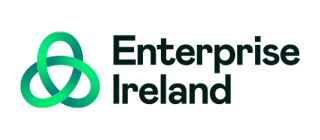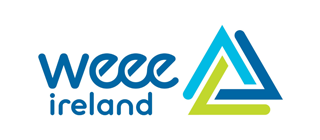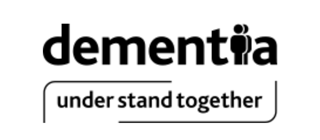
Deciding what’s the best option for long-term care is a significant decision to make. With many options available, it can be difficult to know which one will suit your loved one best. We’ve put together some information which we hope will help make the journey to finding the right solution that little bit easier.
Things you’ll need to consider whenever thinking about which long-term option is best for your loved one;
• Where will your loved one feel most empowered?
Whenever it comes to a long-term care option for your loved one, the main priority should be ensuring the individual feels empowered and that where possible, they can maintain their daily routine or any hobbies they have. Your loved one will feel most empowered whenever they feel that they have a say in the care they receive, can make decisions for themselves i.e. what time they have dinner and are actively encouraged to be independent.
• What’s the safest option for your loved one?
Your loved one’s safety will arguably be the biggest factor whenever it comes to making a decision around long-term care. The long-term option that the individual and the Circle of Care agree on should be the one that keeps the individual safe at home. For example, if the individual is prone to falls but wants to remain independent, an item like a panic pendent or fall sensors around the home might be the best option.
• Does the individual have any additional needs, or will they require specialised treatment?
For individuals who may have additional needs, such as someone living with a disability or a chronic illness, this should be taken into consideration whenever deciding on long-term care options that would best suit them. For someone living with a disability, they may feel most empowered living in their own homes with the correct equipment in place to carry out their activities of independent living.
• Is the care option affordable in the long-term?
It’s important to factor cost and affordability into your decision whenever deciding on a long-term care plan.
What types of care facilities are available?
Nursing homes
Nursing homes are likely the first option that comes to mind whenever you think of long-term care options. The demand for nursing home facilities in Ireland has greatly increased with the aging population. In 2022, there were 4 new nursing homes created in Ireland and extensions in 25 homes to create 733 new nursing home beds to help with the demand.
A benefit of nursing homes is that loved ones will have 24/7 access to skilled staff who have expertise working within the senior care sector as well as working with people who have disabilities. Nursing homes are typically an option for those who are no longer able to manage their daily tasks such as cooking and need assistance with personal care such as showering, toileting etc.
Assisted Living Facilities
Assisted living facilities generally refers to apartments or self-contained flats that have been developed to cater for those on their aging journey or those living with disabilities. Assistive living facilities often have staff who will visit and help support with daily tasks such as shopping, dressing, and washing.
Residents in assisted living facilities can maintain a certain level of independence. Every assisted living facility will differ in the amenities that they offer to residents. Assistive living facilities can become an expensive option long-term, so it’s best to take this into account whenever making your decision.
Day centre services
Day centres for adults are communal spaces which provide respite services, socialising and events for attendees. Those who use day centres will typically visit once or twice a week, but may attend more depending on their needs and abilities.
Day centres are a great option for those seeking respite or social connection, but may not be as beneficial for someone who needs additional support for a long-term care solution.
What if my loved one wants to remain living at home?
The thought of relocating and moving into a new environment may be unsettling for your loved one, particularly if they have formed a sentimental attachment to their home.
HaloCare helps make independent living at home possible through Assistive Technology and their expertly trained Care Hub team, who are there to support individuals with their daily activities of living.
HaloCare is a bespoke service tailored to the individual needs of each client, empowering them to live independently in the comfort of their own home. HaloCare offers 24/7 support, 365 days a year through their use of Assistive Technology and the Care Hub which consists of an expertly trained team of Care Specialists who are always on hand to provide overall support to clients as well as help in an emergency. HaloCare focuses on a holistic approach to wellbeing, ensuring that clients are safe and supported while living independently at home.
HaloCare has three core pillars: Safety, Social & Wellness, and Vital Sign Monitoring.
Safety
HaloCare looks after both the environmental and personal safety of the client.
HaloCare ensures the client's home environment is safe and uses Assistive Technology to detect changes within the home such as if appliances are left on, if there are changes in temperature and even if a tap has been left running which could pose a risk of flooding.
Our expertly trained team of Care Hub Specialist will be notified of any changes that are out of the ordinary and can intervene if necessary to ensure clients are kept safe at home. HaloCare also incorporates a door management system, which alerts our Care Hub team if front or back doors are being opened at unusual times such as in the middle of the night so that our Care Specialists can make sure that clients are safe and secure within their home.
HaloCare ensures clients personal safety is taken care of using wearable devices and contactless Assistive Technology. HaloCare offers wearable fall detection in the form of a HaloGo Watch or a pendant, which can alert the Care Hub team if a client has fallen either in or out of the home and both also have an S.O.S button which can be activated in the case of an emergency. Once the S.O.S button is pressed, a member of the Care Hub team will reach out to the client to ensure they are okay, or to provide assistance if needed. The HaloGo Watch also has GPS, which can notify the client's Circle of Care of their location if needed in an emergency.
Panic buttons are available to be installed throughout the client's home, in particular, in rooms where falls may be more likely such as the bedroom and bathroom. Panic buttons in the bathroom also have an emergency pull cord to make it easier for a client in distress to seek assistance.
HaloCare Assistive Technology devices are contactless to reduce the need for additional wires around the home, reducing any potential trip hazards. With a HaloCare solution in place, help is always available around the clock.
Social & Wellness
The HaloCare HaloPad has been developed to be easy to use, even for those who are not confident using technology, and makes it easier than ever before for clients to stay connected with their loved ones. Clients can add a list of contacts to the HaloPad and can make a call, with one simple press of a button.
The HaloCare Circle of Care Companion App also provides a secure link to the HaloPad to allow video calls, photo sharing and calendar access so loved ones can stay informed and connected on the client’s wellbeing.
HaloCare keeps clients socially connected through a bespoke service where trained Care Specialists will call clients, at their request, for a ‘comfort call’, allowing for a nice chat from a friendly face.
Vital Sign Monitoring
HaloCare incorporates Vital Sign Monitoring to provide health professionals and clinicians with timely access to client’s vitals for better health outcomes. Vital Sign Monitoring makes managing vital signs, such as blood pressure and oxygen levels, possible from home.
Being able to capture vital signs from the comfort of the client’s home means fewer trips to the GP and can help prevent hospital admissions through early detection.
Clients will feel more empowered and can better manage their health with a HaloCare Solution in place.
If you would like to find out more about HaloCare, and if it’s the best option for at-home care for your loved one, get in touch today.
.jpg?width=352&name=250423HC04_Halo_Blog_Cover_V02%20(1).jpg)









